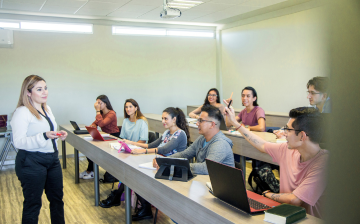
How Long Does a Post Graduation Course Take?
How Long Does a Post Graduation Course Take?
Post graduation has become an important step for students and professionals who want to advance their careers, gain specialisation, or explore new fields. However, time commitment is a major factor to consider before enrolling in a course. The duration of a Post graduation course depends on factors such as the type of course, country, field of study, and mode of learning. The time required to complete a programme matters because career prospects, financial expectations, and personal schedules are affected.
This article explores the typical duration of Post graduation courses, why some take longer than others, and what students should consider before making a decision
General Time of Post graduation Courses
Most Post graduation programmes are categorised based on duration:
Master’s Degrees (MA, MSc, MBA, MTech, etc.)
- Usually 1 to 2 years full-time.
- Part-time programmes may extend to 3 to 4 years.
- Research-based degrees may take longer due to thesis requirements.
Post Graduate Diplomas Courses (PG DM/PG D)
- Typically 1 year full-time.
- Professional diplomas may last 15–18 months if internships are included.
Ph.D.
- The most variable in length.
- Usually 3–6 years depending on research progress and university requirements.
Executive Programmes & Professional Certifications
- Can be completed in 6 months to 1 year.
- Suitable for working professionals wanting to upgrade skills without long-term commitment.
Factors Influencing Course Duration
Although there are standard durations, several factors influence how long a course may take for individual students:
Program Type
- Academic degrees like MSc in Physics involve coursework and research.
- Professional courses, such as postgraduate diploma or executive MBA, are shorter and more focused.
Mode of Study
- Full-time courses follow strict academic schedules and finish sooner.
- Part-time or distance learning options may extend the duration but offer flexibility.
Country of Study
- Master’s programmes in the US are often 2 years long.
- The UK and Australia offer many one-year master’s courses.
- In India, PGDM and MBA programmes are commonly 2 years but shorter options exist.
Specialisation & Research Requirements
- Fields like medicine, law, and engineering take longer due to mandatory internships or projects.
- Dissertation-based programmes also extend the timeline.
Personal Commitments
Students managing work, family, or other responsibilities may choose longer part-time courses.
Why Course Duration is Important
Time plays a crucial role in career, financial planning, and personal goals. The following points explain why course length matters:
- Return on Investment (ROI): Longer courses may delay earnings, while shorter ones allow quick re-entry into the workforce.
- Relevance to Skills: In fast-changing fields like technology and finance, shorter and specialised programmes may offer up-to-date skills.
Flexibility: Modular or blended programmes provide the freedom to learn while managing other commitments.
Typical Timelines by Discipline
Here’s a breakdown of common course durations:
- Business & Management (MBA, PGDM): 1–2 years
- Engineering & Technology (MTech, MS): 2 years
- Arts & Humanities (MA, MSc): 1–2 years
- Law (LLM): 1 year (UK/India), 2 years (USA)
- Medicine & Healthcare (MD, MS, MPH): 2–4 years
- Risk Management & Specialist Diplomas: 1 year (with variations)
- PhD in all disciplines: 3–6 years
Knowing these timelines helps students weigh not just content but also the time investment required.
Choosing the Right Duration for Career Growth
The right course length depends on career objectives:
- Switching Careers: Short diplomas or certifications are ideal.
- In-depth Knowledge: Two-year master’s or longer research-based programmes offer comprehensive learning.
- Full-Time Job Holders: Part-time or online courses spanning 2–3 years allow flexibility.
It’s essential to balance the time you invest with the skills you wish to acquire.
Conclusion: Taking the Right Direction with GRMI
For professionals aiming to specialise in risk management, the Global Risk Management Institute (GRMI) offers a carefully structured pathway. Its Post Graduate Diploma in Risk Management (PGDRM) is designed to fit within a one-year framework, allowing both working professionals and fresh graduates to gain in-demand skills without a long-term academic commitment.
The programme focuses on applied learning, international risk models, and industry relevance, helping students become job-ready in a short span. In today’s competitive job market, where course duration influences career decisions, GRMI’s PGDRM provides a practical and efficient option for those wanting to build a successful career in risk management.
Whether you choose a one-year diploma, a two-year master’s, or a longer research programme, aligning your course with your career goals, budget, and lifestyle is key. GRMI’s PGDRM offers the right blend of time efficiency and professional growth to ensure long-term success.
FAQ's
Q1. What is the typical duration of a Post graduation course?
Ans. Diplomas can be completed in one year, while master’s degrees generally require one to two years of full-time study.
Q2. Can I work and take a post graduate course at the same time?
Ans. Yes, many online and part-time programmes are designed for working professionals and span two to three years.
Q3. Why is course duration important when choosing a programme?
Ans. Course length affects your ability to balance work and studies, income potential, and career advancement.
Q4. Are shorter courses still worthwhile?
Ans. Absolutely. Specialised one-year programmes offer updated skills and faster access to job opportunities.
Q5. Why is GRMI’s risk management training suitable for both professionals and students?
Ans. GRMI’s PGDRM emphasises practical learning and industry applicability, catering to fresh graduates and working professionals alike.
You may also like

How to Decide Between a PG Degree and PG Diploma After Graduation



